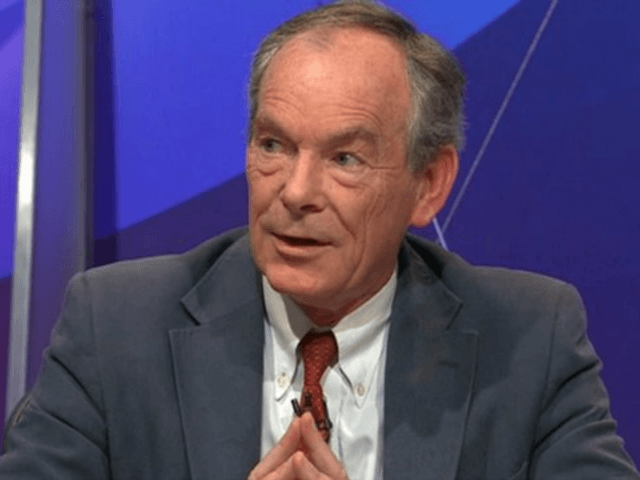“The scariest thing about Brussels is our reaction to it,” says respected British journalist and commentator and former editor of the (London) Times, Simon Jenkins.
Really?
Scarier than, say, being one of the two London businessmen now lying in a Brussels hospital with “life-changing injuries” having taken the full force of the airport nail bomb which killed at least 14 people and hideously shredded many more?
Scarier than being one of the passengers on the Brussels underground at 9.11 on a Tuesday morning hearing the olive-skinned man with the suicide belt yelling the last words you’ll ever hear: “Allahu Akbar”?
Sorry, Simon. I’m not buying it. You’re talking theory: this thing you’ve read in some dry-as-dust, surrender monkey textbook about how by reacting to “terror” we’re “doing what the terrorists want.”
Whereas I’m talking practice. Most of us — not you Simon, obviously, you’re above such trivial concerns — have a very simple wish. When we go to watch a marathon, or a rock concert, or out for dinner, or to a Christmas party, or to take a bus, or to catch a plane, or to a football match, or shopping, or to a hotel, what we’d like very much, if it’s all the same with you, Simon, is not to have lurking at the back of our minds the nagging worry that we might be blown up or shot or otherwise murdered by brutalised adherents of a religious death cult.
Sure it means we’re not as sophisticated as you. It makes us a bunch of scaredy-cat babies, possibly. But when we read you write a paragraph like the one I’m about to reproduce below, it inclines many of us to think — not for the first time in your writing career, it must be said — that you’ve utterly lost touch with the world inhabited by normal, sane people.
Textbooks on terrorism define its effects in four stages: first the horror, then the publicity, then the political grandstanding, and finally the climactic shift in policy. The initial act is banal. The atrocities in Brussels happen almost daily on the streets of Baghdad, Aleppo and Damascus. Western missiles and Isis bombs kill more innocents in a week than die in Europe in a year. The difference is the media response. A dead Muslim is an unlucky mutt in the wrong place at the wrong time. A dead European is front-page news.
Just that short sentence “The initial act is banal” deserves you a “dhimmi loon of the year” award. In its lofty callousness it’s right up with “You can’t make an omelette without breaking eggs” attitude of Stalinists who think “one death is a tragedy but a million is a statistic.”
As for this idea you have that because lots of people die violently every week in the Baghdad, Aleppo and Damascus we therefore should suddenly feel OK about being slaughtered on the streets of Brussels, Paris, Madrid, Boston, London, San Bernardino or wherever, actually, Simon, no, this is bollocks of such cast-iron, weapons-grade quality I’m frankly amazed that as you typed it your keyboard didn’t dissolve in contempt and ridicule that such fifth-form fatuousness should have emerged from the supposedly educated brain of a St John’s, Oxford graduate.
Baghdad, Aleppo and Damascus, Simon, are all in countries engaged in bloody sectarian civil wars where life, unfortunately, is cheap.
This is not the case in the U.S. and Europe.
Life is expensive where we are — and rightly so because our Judaeo-Christian civilisation, filtered through the Enlightenment, has fought hard over the centuries to make it more valuable. That’s why we have the rule of law and property rights and habeas corpus and politeness and a welfare safety net and freedom of expression and protection for minorities and all the civilised things they tend not to have in life-is-cheap places like Africa and the Middle East.
So you see, Simon, being killed on the streets of countries where life expectancy is long and where the murder rate has plummeted to a near-all-time low is not something most of us can shrug our shoulders over. It’s a seriously big deal.
Sure there’s stuff in your article some of us might agree on.
You talk about all the bad policies governments have introduced as a knee-jerk response to “terror” and you’re quite right: our governments have indeed behaved like headless chickens and their botched foreign policy interventions — the second Iraq war; Afghanistan; Libya — almost certainly have exacerbated the terror threat rather than reduced it.
But that’s an argument against governments doing bad, ill-thought-through stuff. It doesn’t follow, as you seem to be suggesting, that therefore the only sensible solution is to take all this horrific violence on the chin in order to avoid escalating it any further.
That’s because, whether bien-pensants like you like it or not, Simon, that horrific violence on our streets is going to escalate.
And there’s loads we can do to stop it. And loads we’re going to have to do to stop it sooner or later because there’ll come a point when ordinary people — not sophisticated columnists like you, Simon — have simply had enough and won’t be able to take it any more. At which point it could get really ugly.
If we want to stop it getting really ugly, the first thing we absolutely have to do is to ignore the siren voices of blithering liberals like Simon Jenkins.
It simply isn’t true, as Simon ludicrously implies, that if we close our eyes, stick our fingers in our ears and go “Nyah nyah nyah. It’s not really happening!” all the nasty stuff will go away.
The nasty stuff is here to stay and glib cultural relativists like you, Simon, are part of the problem, not the solution.

COMMENTS
Please let us know if you're having issues with commenting.